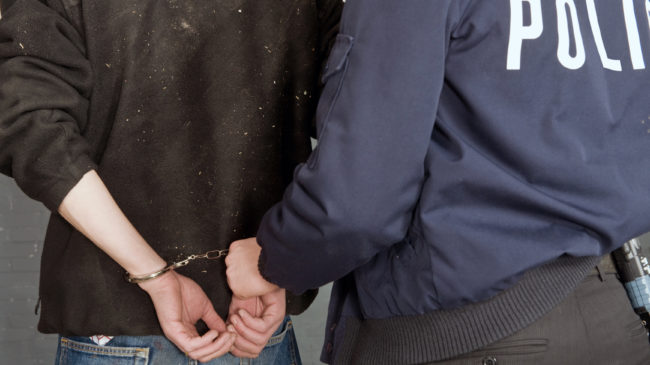Five years ago, Washington D.C. was barred from legalizing marijuana sales thanks to federal interference.
The possession and consumption of marijuana are legal in the district, and one ounce can be gifted, but there are no retail stores and no regulation. Despite these limitations, reforms to decriminalize the substance have enjoyed significant success, with marijuana arrests falling substantially.
Unfortunately, racial disparities in arrest rates remain endemic even though there’s no difference in use between blacks and whites. But some local residents haven’t given up the good fight to de-escalate the drug war.
On November 3, Initiative 81 will appear on the local ballot. It demands the use, possession, and cultivation of small amounts of entheogenic plants like magic mushrooms be downgraded to law enforcement’s lowest priority. Both D.C.’s attorney general and the U.S. Attorney for Washington, D.C., would be called upon to “cease prosecution of residents of the District of Columbia for these activities.”
The measure is modest by design. It’s a far cry from legalization and doesn’t even decriminalize the use of psychedelics as it is not within the district’s power to legalize a schedule one drug. But it was quite an achievement to get the measure on the ballot in the first place. Amid a global pandemic, campaigners managed to gather 36,000 signatures that were submitted to the Board of Elections in June.
Spearheaded by Melissa Lavasani, an employee of the city government, the initiative mirrors those passed in Denver, Oakland, and Santa Cruz in recent years. Lavasani credits micro-dosing magic mushrooms with helping her overcome her postpartum depression. Her story is not uncommon. Many people have used these drugs to help treat a host of mental health problems.
Psilocybin, the hallucinogenic compound in magic mushrooms, for example, has shown great promise in alleviating major depression and anxiety. In 2018, the Food and Drug Administration (FDA) designated psilocybin a “breakthrough treatment” for these conditions—meaning research and evaluation will be accelerated. After years of demonization, misinformation, and propaganda the potential of these substances to help those suffering severe pain is finally being realized.
The benefits of Initiative 81 are at least two-fold. First, those who use these substances, especially for therapeutic reasons, will have less reason to fear that using these natural remedies could land them in jail. People shouldn’t be imprisoned for using substances. Second, the initiative would further demonstrate local residents’ opposition to treating all drug use as a criminal problem would help reprioritize and shift law enforcement resources to where they will do the most good in the community.
After a long period of decline, murders are on the rise in the District. Wasting scarce resources enforcing arcane prohibitions and victimless crime laws never made sense, but it’s all the more nonsensical when violent crime is spiking.
There are critics, of course. Unsurprisingly, the most vocal critic is Rep. Andy Harris (R-Md.), who was responsible for killing Washington, D.C.’s plans for establishing a legal retail marijuana market several years ago.
“What would prevent people from using hallucinogens, getting behind the wheel of a car and killing people?” Harris said to the New York Post about the psychedelics initiative.
The answer is obvious. It’s what stops most people from getting behind the wheel intoxicated. They don’t want to hurt themselves or others. They don’t want to open themselves to criminal prosecution for driving intoxicated or to the guilt and regret of hurting someone.
Deaths from drunk driving have been steadily declining since the 1980s. This happy progress isn’t a consequence of prohibition. We have laws against drunk driving, not against drinking per see. A frequent mistake of supporters of the war on drugs, like Rep. Harris, is to assume that if people are not constrained by criminal law, they will lose all regard for their well-being and that of their fellow citizens.
Initiative 81 may not be a revolution in city policing, but it represents incremental progress toward ending the war on drugs and the people who use them.

